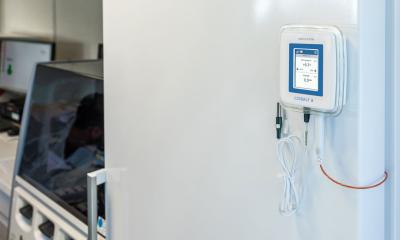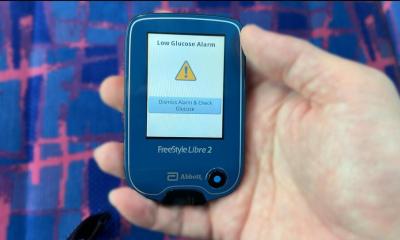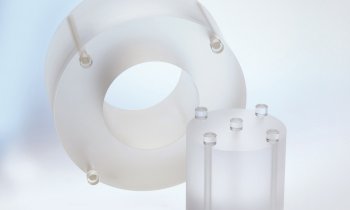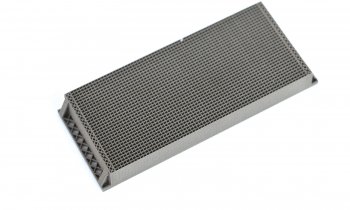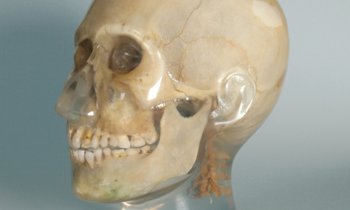British-made early warning monitor a “game changer”
A disposable vital signs monitoring system no bigger than a plaster was today hailed a “game changer" by a leading hospital medic ahead of its UK rollout.

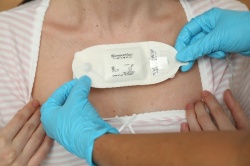
The ultra-low power SensiumVitals wireless patch is a vital signs monitoring and alert system which allows medical staff to react instantly to sudden deterioration - improving patient safety and reducing healthcare costs.
The patch checks for heart rate, breathing and temperature. Updates are wirelessly sent every two minutes to staff, enabling them to take immediate action if a patient’s condition worsens.
The system directly addresses concerns about patient safety which have been highlighted in a number of recent reports. In a US study of SensiumVitals last year patients who received early intervention on average saw hospital stays reduced by four days.
These results indicate that SensiumVitalsx has the potential to deliver savings across the NHS of £500 million.
The system, developed by Oxford-based Sensium Healthcare, will be rolled out at the Spire in Hove, East Sussex, this spring.
“Game changing”
Dr Ian Jackson, Medical Advisor to Sensium Healthcare, Chief Clinical Officer for York Teaching Hospital and President of the International Association for Ambulatory Surgery said: "There is ample research which clearly highlights that early detection of patient deterioration is vital to improving patient safety and avoiding preventable deaths.
“With routine observations undertaken manually by staff typically every four to eight hours the simple reality is that deterioration can - and does - occur between these rounds.
"In busy wards, the addition of vital signs monitoring every two minutes through SensiumVitals is no less than game-changing, providing essential early detection alerts to enable speedy intervention, giving real reassurance to staff, patients and families as a result."
Free to move
A wireless, wearable SensiumVitals patch is attached just above the patient’s heart. Sensors record vital signs, sending the data to the hospital’s IT system every two minutes.
Medical staff both in Accident & Emergency and on general wards can view the data via a PC or tablet. When readings fall outside pre-set levels the system issues an alert - allowing staff to react instantly.
Each patch lasts for five days - the length of most hospital stays - and wireless capability combined with a weight of just 15g (half an ounce) means patients are free to move around.
A study carried out by the National Patient Safety Agency and published in the British Medical Journal in 2012 concluded that 11,859 adult deaths in hospitals in England in 2009 were preventable. Clinical monitoring, such as a failure to monitor patients appropriately, was identified as a problem in just under a third of cases.
Need “never greater”
Launching SensiumVitals in the UK, Sensium Healthcare CEO Anthony Sethill said: “Research from the trials we have undertaken has clearly shown the SensiumVitals system delivers its promise of early detection to enable early intervention.
"While the patient benefits of early detection are obvious, the reduction in need for more complex and costly interventions and associated reduction in length of hospital stay provide equally important cost savings..
"With increasing pressures on ward staff and hospital management, the importance of incorporating technology advances, such as the two minute monitoring of SensiumVitals®, has never been greater."
The system was the first of its kind to win FDA 510(k) clearance in the US. It is CE marked in Europe and is attracting significant interest from hospitals across the globe.
SensiumVitals has been piloted in the UK and the US – including St Mary’s Hospital in London, part of Imperial College Healthcare NHS Trust, and a six-month trial at the Saint John’s Health Center in Los Angeles.
The US pilot, which concluded in March last year, provided early detection of deterioration in 12 per cent of the 168 patients who took part.
31.03.2014



